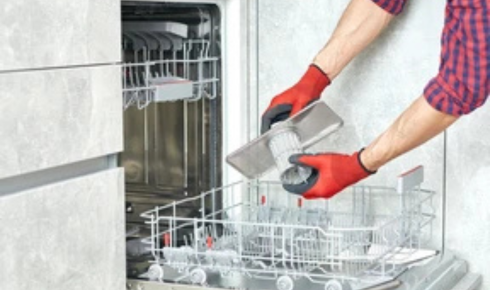Table of Contents
- Plumbing Issues
- Appliance Efficiency
- Cleaning Challenges
- Skin and Hair Health
- Increased Energy Costs
- Laundry Problems
- Simple Solutions
- Protecting Your Home for the Long Term
Many homeowners are unaware of how the quality of their water can influence the condition of their homes. Hard water, which contains high levels of calcium and magnesium, can cause a range of problems—from limescale buildup in pipes and appliances to dull, spotty dishes and stiff laundry. Over time, these mineral deposits can reduce the efficiency of water heaters and increase energy costs, making it more than just a cosmetic issue.
Fortunately, there are effective ways to manage these challenges and protect your home’s plumbing and appliances. For residents seeking practical solutions, water softeners Tampa specialists offer systems designed to remove excess minerals and improve water quality. With the right approach, homeowners can extend the lifespan of their fixtures while enjoying cleaner, more efficient water use.
Plumbing Issues
Over time, minerals in hard water cause scale to build up inside pipes, leading to reduced flow and higher pressure. This forces the plumbing system to work harder, resulting in wear, clogs, and corrosion, which can cause leaks and expensive repairs. Additionally, scale accumulation can encourage bacteria growth. Indicators such as decreased water flow or strange noises suggest plumbing issues. Regular maintenance, including descaling or installing a water softener, can help prevent these major problems.
Appliance Efficiency
Water-dependent appliances, such as dishwashers, washing machines, and water heaters, are vulnerable to mineral deposits that can reduce their performance and efficiency. Scale buildup places additional strain on components, shortens their lifespan, and increases energy consumption, resulting in higher bills. Regular maintenance and water softening treatments can prolong the lifespan of these appliances, saving money and ensuring they function optimally for an extended period.
Cleaning Challenges
Hard water minerals reduce the effectiveness of soap, resulting in scummy residues that make cleaning dishes, glassware, and surfaces more challenging. This leads to cloudy glassware from dishwashers and chalky deposits on shower doors and tiles. Removing these tough residues often demands harsh cleaners and vigorous scrubbing. Using specialized hard water detergents or a water softening system can enhance cleanliness and protect surfaces, saving time and effort in cleaning.
Skin and Hair Health
Bathing in hard water can cause dry and irritated skin and dull, brittle hair. It leaves a mineral film that can worsen conditions like eczema and hinder lotion absorption, particularly affecting children and those with sensitive skin. The excess minerals also weigh down the hair, complicating management and necessitating more frequent washes. Using water softeners can improve the health of your skin and hair, making them smoother and more manageable.
Increased Energy Costs
Mineral deposits in water heaters decrease efficiency because they act as insulating layers, which causes higher energy use and increased utility costs. Homeowners might notice longer cycle times in their appliances. Regularly flushing the water heater and installing a softener can improve efficiency, reduce expenses, and lessen environmental impact by preventing scale buildup.
Laundry Problems
Hard water causes laundry issues such as rough fabrics and poor detergent performance, leading to higher soap use and less effective cleaning. This results in towels losing fluffiness, clothes fading, and whites turning yellow. Conversely, soft water improves detergent efficiency, makes fabrics softer, and extends the life of garments.
Simple Solutions
There are multiple effective ways to manage hard water: Ion exchange water softeners swap calcium and magnesium for sodium or potassium ions, providing a classic and reliable method to reduce water hardness. Salt-free water softeners use techniques such as template-assisted crystallization, making them suitable for low-sodium diets while offering benefits like lower maintenance and reduced environmental impact. Electromagnetic water softeners prevent mineral buildup and scale formation, offering a salt-free, low-maintenance option ideal for small households or as a supplementary solution.
Protecting Your Home for the Long Term
Understanding the effects of hard water allows homeowners to take proactive steps toward preserving their property and reducing maintenance costs. By investing in effective softening solutions and regular upkeep, you can maintain efficient systems, improve comfort, and extend the lifespan of your home’s plumbing and appliances—all while enjoying cleaner water every day.

